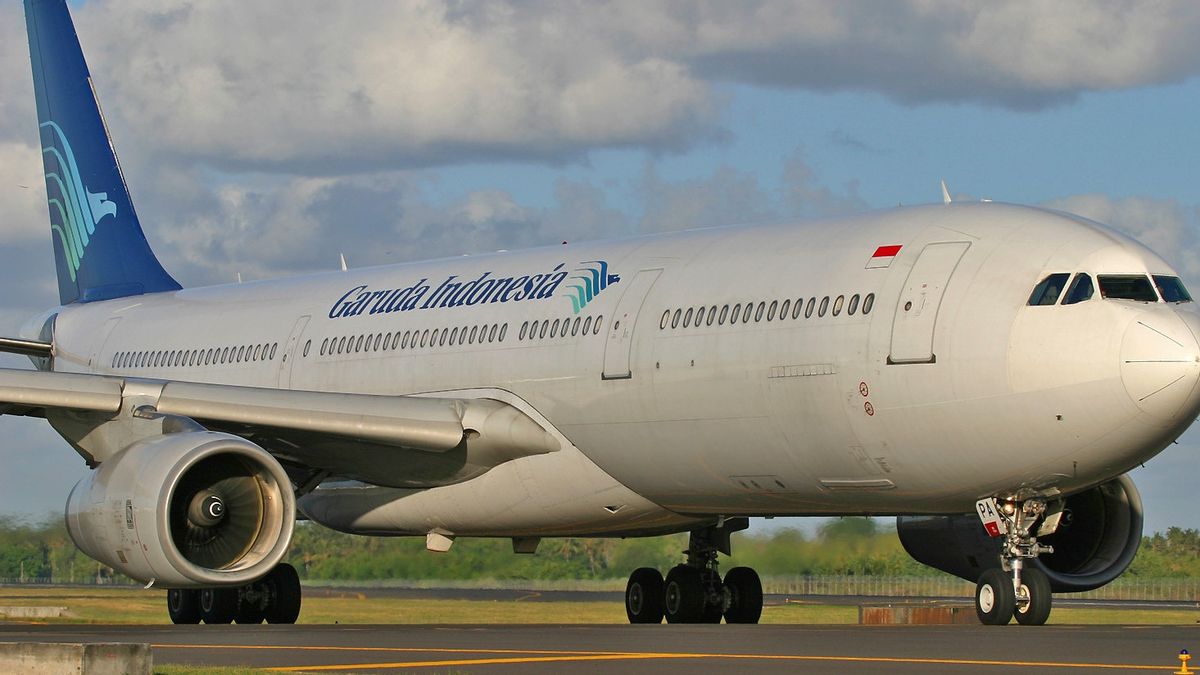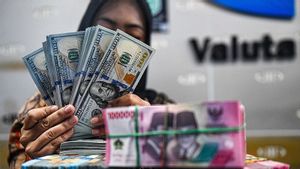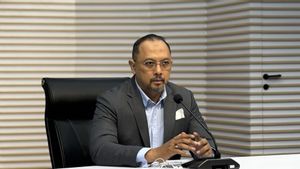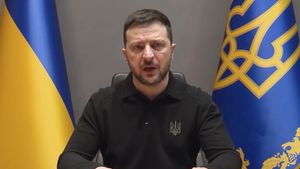JAKARTA - PT Garuda Indonesia (Persero) Tbk was revealed to have debts reaching 9.8 trillion or equivalent to Rp. 139 trillion. Of the total debt, the largest debt comes from the obligation to pay aircraft leases to lessors, amounting to US$6.3 billion. The issuer with the stock code GIAA has also reduced the number of aircraft fleets from 142 units to only 60 operating units.
Then, will it have an impact on termination of employment (PHK)?
Deputy Minister of State-Owned Enterprises II Kartika Wirjoatmodjo said that Garuda Indonesia would terminate employment or lay off employees. This was done as an effort to increase the efficiency of its financial structure and reduce the debts entwined by Garuda.
Furthermore, Tiko, as he is familiarly called, explained that the layoffs would be carried out with an early retirement program scheme to other programs that management will offer to employees later.
"Garuda plans to reduce the number of employees, either through an early retirement program or other programs," he said in Jakarta, quoted Friday, November 12.
The layoffs are in line with the steps taken by Garuda management to cut a number of domestic and international flight routes. Later the domestic flight route a will be less than 273 to 140 only. This means that there will be 97 flight routes that will be cut.
Tiko said that his party would significantly stop Garuda Indonesia's international routes and leave cargo volumes that were considered adequate or profitable during the COVID-19 pandemic.
Furthermore, Tiko explained that instead, his party would multiply or refocus international routes to domestic which are considered more profitable in terms of business.
"We have reduced international services significantly, and only a few international ones are being serviced, mostly because of the good volume of cargo. So we will not have long hold routes such as Amsterdam, Netherlands and so on shut down. Even quiet routes like Korea will be shut down. shut down, so we declare an adequate volume of cargo," he said.
In addition, Tiko also said that Garuda's flight schedule is currently increasingly scarce. This is because the majority of the existing aircraft are grounded or grounded.
"Garuda is the most drastic of its 142 planes, currently only 50-60 aircraft are operating. So we have received many complaints over the past month Garuda flights are getting rarer, because the planes are grounded," he said.
Furthermore, Tiko, as the Deputy Minister of BUMN is familiarly called, explained that of the many types of aircraft previously owned by Garuda, the Boeing 737, which was more efficient in terms of operation, was the one that was mostly taken by lessor companies.
According to Tiko, this is also what makes this national airline only use the widebody Boeing 777 and 330 which carry more passengers, although not as efficiently as the Boeing 737.
"What's interesting is that the 737 is efficient, it's the smaller 737 that is mostly taken by lessors, that's why we use a lot of widebody aircraft, the 777 and 330. If you go to Denpasar now, there are many 777 widebody aircraft, although they are not as efficient as the 737," he explained.
Meanwhile, Tiko said that Garuda's subsidiary, Citilink, is still relatively stable in terms of aircraft ownership, with the majority being the A320 type. The aircraft type and aircraft ownership by Citilink will remain.
Garuda is technically bankruptTiko revealed that the equity balance of PT Garuda Indonesia (Persero) Tbk had surpassed PT Asuransi Jiwasraya (Persero). He said that Garuda had negative equity of US$2.8 billion or equivalent to Rp40 trillion.
"We emphasize that Garuda's balance sheet is currently experiencing negative equity of 2.8 billion US dollars, so this is a record, if the record was previously held by Jiwasraya, now it has been shifted by Garuda. So Garuda's negative equity has reached Rp. 40 trillion," he said in a meeting with Commission VI DPR, Tuesday, November 9th.
For your information, PT Asuransi Jiwasraya (Persero) was recorded to have negative equity reaching Rp38.4 trillion as of December 2020. Meanwhile, Garuda Indonesia as of September 2021 was in a negative position of US$2.8 billion or Rp40 trillion.
Kartika said that the drop in the level of Garuda Indonesia's balance sheet was also caused by the statement of financial accounting standard (PSAK) 73 made by the company in 2020-2021 which caused the impact of the decline in equity to deepen.
According to Kartika, this position has technically dragged the company into bankruptcy.
"In this condition, in terms of banking, it is technically bankrupt, but not legally, this is what we are currently trying to get out of this position," he said.
Furthermore, Kartika said, the assumption of bankruptcy is because in practice some of Garuda Indonesia's obligations have not been paid. In fact, the salaries of employees have been cut since 2020. Meanwhile, the salaries of company officials have been partially withheld.
"So we must understand together that Garuda's situation is actually technically bankrupt. Because of its long-term obligations, none of it has been paid, including global sukuk, including himbara and so on," he said.
Tiko explained that Garuda's debt position reached 9.8 billion US dollars. According to him, arrears in payments to lessors worth US$6.3 billion are the biggest debt. Because there is a long-term component, and there was a component that didn't pay off in the short term.
"If it is stated that the debt is recorded at 7, plus then the debt from the lessor that has not been paid back is 2 billion US dollars, so the total is actually 9 billion US dollars," he said.
Meanwhile, the company's assets are only US$ 6.9 billion. Tiko said the financial problems at the national airline were due to a combination of past corruption and declining revenues during the COVID-19 pandemic.
"So I am often asked why Garuda's performance has decreased because of what? Is it because of corruption or the pandemic? Yes, both, not one. So it is affected because both of them make Garuda's current condition not good," he said.
The English, Chinese, Japanese, Arabic, and French versions are automatically generated by the AI. So there may still be inaccuracies in translating, please always see Indonesian as our main language. (system supported by DigitalSiber.id)













